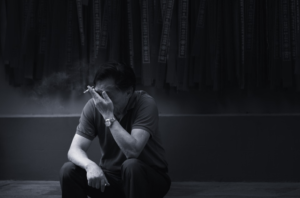Understanding the Health Equity Movement
This year shed light on the harsh reality in people of color. To amplify, there is a significant lack of trust in the healthcare system. According to this link, https://ounews.co/arts-social-sciences/society-politics/poverty-and-inequality-report/, our classes wanted to understand why victims of color do not participate in clinical trials, so we went straight to the source: the victims. That’s why at Genentech, we conducted a study to better understand and raise the patient’s voice by asking them exactly how they experience health disparities in their everyday lives and how these disparities affect their relationship with the healthcare system. What we found is that people who do not feel safe, respected, or recognized are much less likely to seek care.
Health Equity
 The study examined the health care utilization and experiences of 1,200 clinically obese people combined with 1,000 patients representing the general population of the United States. Less than half of the clinically disabled patients were confident that their well-being was being pursued with consideration and empathy and that their specific needs were being met. The disproportionate impact of COVID-19 on “communities of color” is to be expected because of this lack of certainty in vaccine dispersal. Our study also found that approximately one in three clinically obese patients do not participate in clinical trials and instead choose not to be vaccinated and screened for disease because of the lack of certainty.
The study examined the health care utilization and experiences of 1,200 clinically obese people combined with 1,000 patients representing the general population of the United States. Less than half of the clinically disabled patients were confident that their well-being was being pursued with consideration and empathy and that their specific needs were being met. The disproportionate impact of COVID-19 on “communities of color” is to be expected because of this lack of certainty in vaccine dispersal. Our study also found that approximately one in three clinically obese patients do not participate in clinical trials and instead choose not to be vaccinated and screened for disease because of the lack of certainty.
Necessary Reforms
 Major social inequities, like those in the health care system, are systemic, and we too cannot correct these problems on our own. We act urgently to make the health care system work for the people who want it. We are committed to improving global research and working with communities to make quality health care accessible. To achieve this goal, we are investing in diverse science, technology, engineering, and mathematical capacity to ensure that the next generation of physicians, scientists, and researchers is diverse and representative of how the world is. But there is still much work to be done. To the extent that we can close a gap, we have an ethical responsibility to do so.
Major social inequities, like those in the health care system, are systemic, and we too cannot correct these problems on our own. We act urgently to make the health care system work for the people who want it. We are committed to improving global research and working with communities to make quality health care accessible. To achieve this goal, we are investing in diverse science, technology, engineering, and mathematical capacity to ensure that the next generation of physicians, scientists, and researchers is diverse and representative of how the world is. But there is still much work to be done. To the extent that we can close a gap, we have an ethical responsibility to do so.
The fight for health equity is more than a moment; it is the standard of care. The search for answers is not a new thing to us, but as much as we have made it a priority, we have not conducted it sufficiently. As the nation beckons for reform to dismantle the systemic racial prejudice that has driven to unwanted deaths, numerous health care providers, including ourselves, have much more to do to discuss the inequities to people existing in our health care system.
